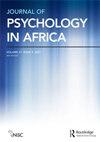研究生挑战-阻碍型科研压力与创造力:创造性自我效能感的中介作用
IF 0.8
4区 心理学
Q3 PSYCHOLOGY, MULTIDISCIPLINARY
引用次数: 0
摘要
摘要本研究探讨了研究生挑战-阻碍型科研压力与创造力的关系,以及创造性自我效能感在这一关系中的中介作用。研究对象为来自江浙沪某大型大学的1210名中国研究生(女性占57.1%;人文科学22.2%,社会科学45.9%,科学、农业、医学21.9%;博士= 38.3%;平均年龄25.50岁)。运用结构方程建模和自举法,研究结果表明,挑战性科研压力对研究生创造力有直接的正向影响,而阻碍性科研压力对研究生创造力有直接的负向预测作用,但影响程度较低。创造性自我效能感在研究生挑战、科研压力与创造力的关系中起到部分中介作用,强化了这种关系。创造性自我效能感在阻碍科研压力对研究生创造力的影响中起中介作用。这些结果与研究生在个体感知不同压力源时效能体验的差异有关。本研究的结果与社会认知理论一致。这些发现表明,研究管理者需要为研究生提供合适的、具有挑战性的研究任务、支持性的研究环境、资源和物质奖励。关键词:挑战-障碍科研压力研究生创造力创造性自我效能感压力压力社会认知理论数据可得性声明在参与者同意并完成所有必要文件后,研究数据将应要求提供。本研究中提供的数据可从Hao Yao (yaohao@tongji.edu.cn)获取。知情同意本研究的所有参与者均获得了知情同意。伦理批准在涉及人类受试者的研究中执行的所有程序都符合机构和/或国家研究委员会的伦理标准。本研究由国家教育科学计划资助,批准号:BEA210114。本文章由计算机程序翻译,如有差异,请以英文原文为准。
Graduate student challenge-hindrance scientific research stress and creativity: Mediating effect of creative self-efficacy
AbstractThis study examined the relationship between graduate student challenge-hindrance scientific research stress and creativity and the mediating role of creative self-efficacy in that relationship. Participants were 1 210 Chinese graduate students from a large university in Jiangsu, Zhejiang, and Shanghai (females = 57.1%; humanities = 22.2%, social sciences = 45.9%, science, agriculture, and medicine = 21.9%; doctoral = 38.3%; mean age = 25.50 years). Using structural equation modelling and the bootstrap method, the results showed that challenge scientific research stress had a direct positive effect on graduate students’ creativity, while hindrance scientific research stress had a direct negative predictive effect on graduate students’ creativity, but to a lesser extent. Creative self-efficacy partially mediated the relationship between graduate student challenge scientific research stress and creativity, strengthening the relationship. Also, creative self-efficacy fully mediated in hindrance scientific research stress on graduate student creativity. These results are related to the differences in graduate students’ experiences of efficacy during individual perceptions of different stressors. The results of this study are consistent with social cognitive theory. These findings suggest a need for research managers to give graduate students suitable and challenging research tasks, a supportive research environment, resources, and material rewards for success.Keywords: challenge-hindrance scientific research stressgraduate studentcreativitycreative self-efficacystressorssocial cognitive theory Data availability statementResearch data will be available on request, subject to participant consent and after completing all necessary documentation. The data presented in this study are available on request from Hao Yao (yaohao@tongji.edu.cn).Informed consentInformed consent was obtained from all individual participants included in this study.Ethical approvalAll procedures performed in studies involving human participants were in accordance with the ethical standards of the institutional and/or national research committee.Additional informationFundingThis research was funded by the National Education Sciences Planning of China, grant number BEA210114.
求助全文
通过发布文献求助,成功后即可免费获取论文全文。
去求助
来源期刊

Journal of Psychology in Africa
PSYCHOLOGY, MULTIDISCIPLINARY-
CiteScore
1.70
自引率
16.70%
发文量
62
期刊介绍:
Findings from psychological research in Africa and related regions needs a forum for better dissemination and utilisation in the context of development. Special emphasis is placed on the consideration of African, African-American, Asian, Caribbean, and Hispanic-Latino realities and problems. Contributions should attempt a synthesis of emic and etic methodologies and applications. The Journal of Psychology in Africa includes original articles, review articles, book reviews, commentaries, special issues, case analyses, reports and announcements.
 求助内容:
求助内容: 应助结果提醒方式:
应助结果提醒方式:


